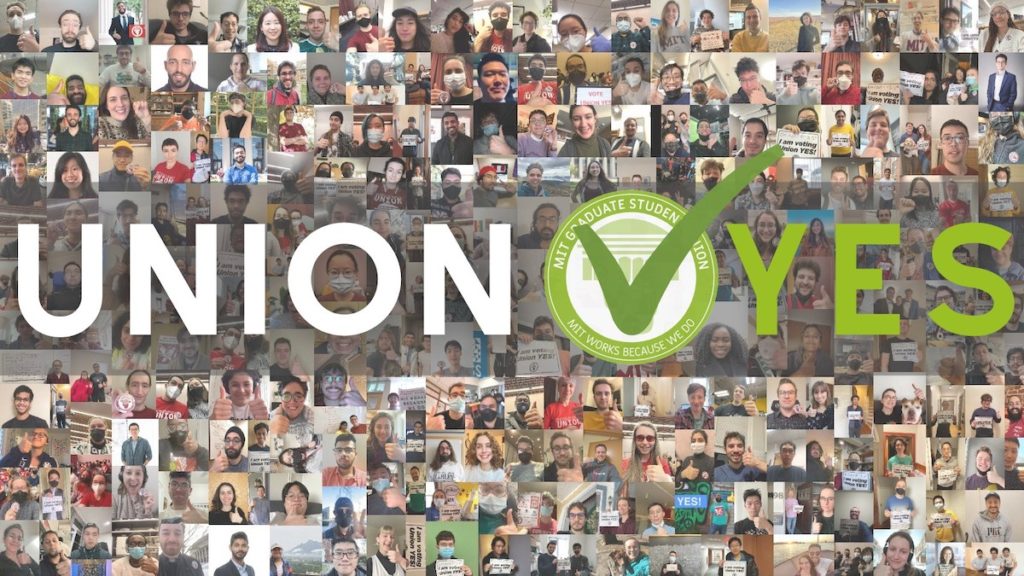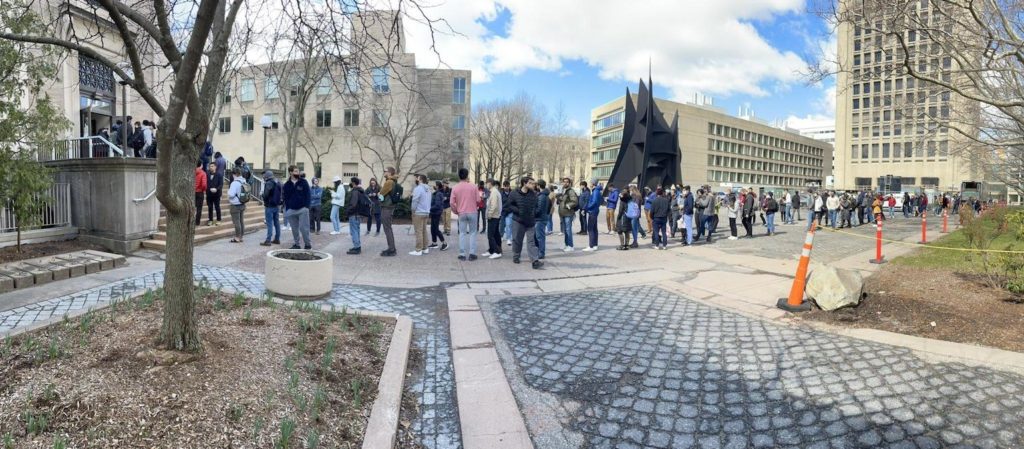Graduate student workers at the Massachusetts Institute of Technology in Cambridge, Mass., won their union on April 6, in affiliation with the United Electrical Workers. The win was a landslide victory with 1,785 votes for the union and 912 against. This is one of the most significant union victories led by graduate workers since 2017 when the Student Workers of Columbia won their union.
A small group of MIT graduate workers began talking to their coworkers about commonly felt issues back in 2018. What started as a dozen concerned students in a classroom four years ago has grown into an organization that led several campaigns for more comprehensive mental health services and against harassment and discrimination on campus.
A seat at the table
“The most popular changes grad student workers want to see is more access to affordable health insurance, including dental coverage. We’re also pushing for changes to the way MIT handles certain immigration concerns,” Ki-Jana Carter told Liberation News. Forty-two percent of the student workers are international.
Carter is a Ph.D. student in the Department of Material Science and Engineering and a union organizing committee member. He explained now that the MITGSU has won official recognition, the workers will have the opportunity to fight for these demands with the MIT administration at the bargaining table.

The GSU went public on Sept. 27, 2021, with its intent to unionize, signed a majority of their coworkers on union authorization cards, and asked for voluntary recognition from MIT — who responded with a vicious anti-union campaign.
‘A vote for UE is a vote for Putin’
Despite its supposedly progressive image, the MIT administration hired outside counsel to lead up their anti-union campaign.
The institution directed professors to turn required work meetings into opportunities to intimidate and confuse workers, where they said unionizing was a gamble that would only benefit “union bosses.”

“A lot of the anti-union messaging was focused on confusion at the end of the day,” Carter explained. “Most of us are young workers and don’t have experiences with unions. … For folks hearing about a union for the first time, that the union could affect their thesis status, or their relationships with their advisors, it can be intimidating. And it’s not true.”
Although the MIT administration typically provides annual 3% raises, the administration granted two raises after the GSU went public, which totaled 8%.
The most desperate tactic MIT used was the character assassination of the GSU’s union affiliate, UE. UE is one of the only left-led unions that survived the labor movement’s anti-Communist purges between 1949 and 1951. MIT scrutinized UE’s position in favor of BDS — Boycott Divestment Sanctions — against Israeli Apartheid, and UE’s opposition to the expansion of NATO.
One anti-union poster went so far as to say “a vote for UE is a vote for Putin.”
‘Together you can work through it’
The graduate workers built an organizing committee that represented the diversity of MIT’s graduate population and unified the campus around broad issues that connected all of them around a common fight.
“Together we were able to break down the misinformation,” Carter said. “The thing that worked was sharing our positive vision. And asking people if there is some way that they can be supported better, that we can improve MIT?” He continued:
“One of the biggest lessons I’ve learned is it’s a lot of work to organize a union, and not as easy as it sometimes seems. Seeing historic election results like Amazon in Staten Island and Starbucks workers, it’s easy to think, ‘oh, another victory!’ But it’s another thing to see what it entails. … If you keep working at it individually and collectively, you can make it happen even in the face of confusion and anti-union lawyers. It shows the power of having genuine relationships and love for your coworkers. Together you can work through it.
“Now that we won in a 2 to 1 victory — which is very inspirational — we hope this is the start of MIT coming to the table to bargain with us.”




